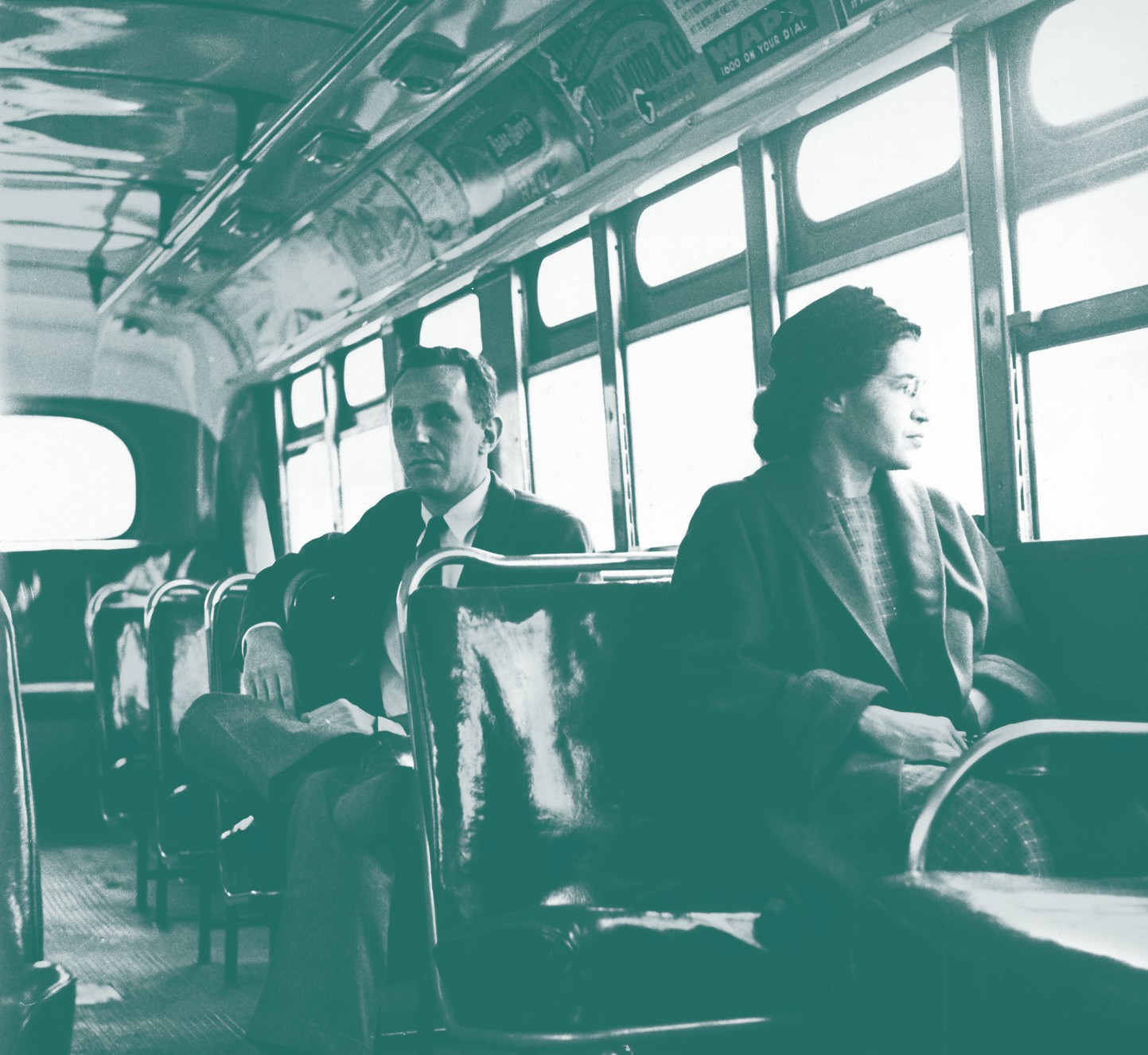
The term ‘social change’ refers to a major change in the social structure of a society, or some widespread change in the behaviour of the individuals that make up that society. In our modern world, as in the past, society is never static, and social change occurs constantly. Social change may refer to social progress or social revolution such as the Communist Revolution in the former Soviet Union, or to social movements such as the suffragettes or the US civil rights movement. Social change can be driven by cultural, religious, economic or even technological influences.
On 1 December 1955, a young black woman boarded a bus in Montgomery, Alabama. Tired after a hard day’s work as a seamstress, and with corns and bunions hurting her feet, she sat in the first of the seats reserved for blacks, behind those reserved for whites. As the bus filled, she was asked to move back in the bus so a white person could have her seat. After refusing to comply with the bus driver’s orders, she was subsequently arrested and taken away by the police.
Your organisation does not have access to this article.
Sign up today to give your students the edge they need to achieve their best grades with subject expertise
Subscribe



